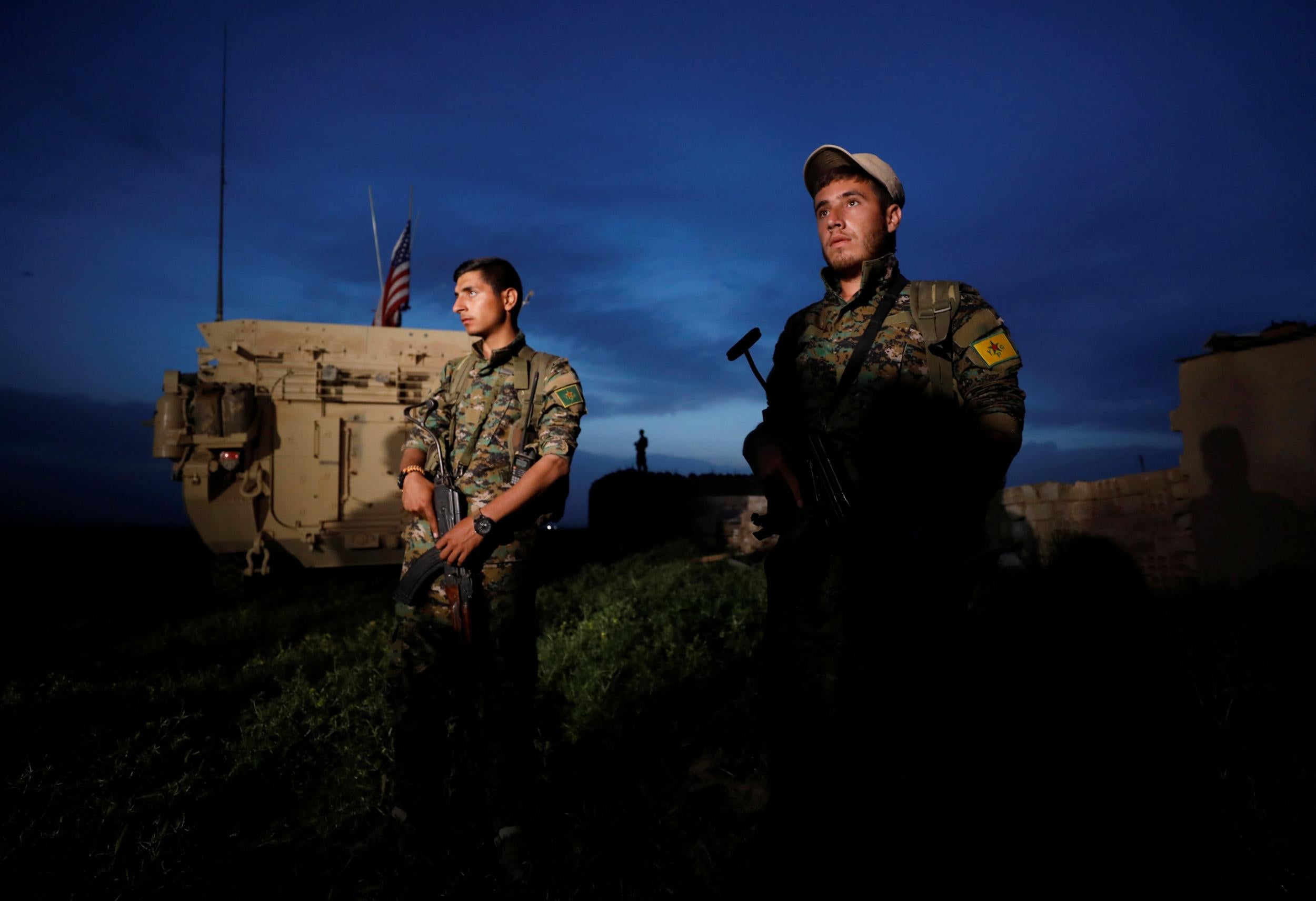US-backed Kurdish forces face accusations of abuse amid Isis liberation campaign
Autonomous Syrian Kurdish administration dismisses Arab rebel allegations of arrests and detentions as Turkish driven ‘propaganda’

US-backed Kurdish forces fighting against Isis in Syria have hotly denied claims the People’s Protection Units (YPG) are involved in the arbitrary arrest and detention of Arab civilians in territory under their control.
Reports that Arab families fleeing Isis as the battle for the group’s de facto capital of Raqqa intensifies are being detained in what activist group Raqqa is being Silently Slaughtered has labelled Kurdish “concentration camps” have multiplied in recent weeks.
The YPG, and later the Syrian Democratic Forces (SDF), a mainly Kurdish alliance of rebels, have proven to be the most effective ground force against Isis, earning them long-standing financial and military backing from the US.
Activists living in Sunni-rebel held parts of the north have long claimed innocent Arab men and boys have been rounded up, detained or otherwise abused by YPG soldiers as they advance on Isis-held areas.
While Human Rights Watch and Amnesty International reports from 2014 and 2015 found some evidence that Kurdish forces had violated the rights of other ethnic groups in their territories, a March 2017 UN investigation cleared the Kurdish administration of allegations their policies or practices are motivated by ethnic cleansing.
Although accusations from Arab rebels continue to pile up, such claims are baseless, said Sheruan Hassan, a Netherlands-based foreign representative of the PYD (Syrian-Kurdish administration), adding that the ongoing conflict means influxes of people must be vetted before they are integrated into Kurdish settlements with scant resources.
“We must take extra precautions when refugees flee from areas which are heavily populated by Isis members,” he said of the some 500,000 internally displaced persons (IDPs) currently living in Kurdish-controlled territory.
“Not even two weeks ago, Isis members infiltrated a group of refugees in transit near the Iraqi border and set off multiple attacks, killing a large number of the innocent refugees.
While we welcome all those fleeing violence, persecution, and oppression, we must also protect our people as best we can from those who would take advantage of our hospitality,” he added.
The anti-Kurdish narrative is largely being fuelled by the changing landscape of the Syrian civil war, Ghadi Sary, a former fellow with Chatham House’s Middle East and North Africa programme, told The Independent.
Despite initial indications he may instead work with Syrian President Bashar al-Assad to defeat Isis, US President Donald Trump doubled-down on the policy of his predecessor Barack Obama earlier this month, promising Syria’s Kurds direct shipments of heavy weapons in the fight for Raqqa.
The decision horrified Nato ally Turkey, which views the SDF and the affiliated Turkish Kurdish PKK movement as terrorist organisations.
Saudi Arabia, the Sunni rebels’ other main backer aside from Turkey, is losing interest in the proxy fight in Syria now it has assurances from the US Riyadh and Washington are on the same page when it comes to Iran, Mr Sari added.
“[The Saudis] are happy that Trump is indulging in their anti-Iran exercises, which is putting a lot of strain on groups who used to get Saudi funding to now jump ship and please Turkey in return for funding. Best way to do it? Demonise the Kurds,” he said.

In addition, despite their treatment as ‘second class citizens’ under successive Damascene governments, the Kurds are not immune to realpolitiking if needs be: YPG fighters in Aleppo worked alongside government troops and Shia militias to bring down the city in December last year, cementing the ill feelings of Arab Sunni rebels towards them.
But it is not in the Kurdish administration’s interests to endanger their broad international support with discriminatory acts against other ethnic groups, Mr Sari continued.
“The reality on the ground is that the Kurds know they are a minority, and like all actors know they have to appease the majority or otherwise face [a challenge towards the legitimacy of their hegemony],” he said.
“Therefore, [the YPG and SDF] are driven by this need for legitimacy to not carry out such [rights abuses],” he added.
Join our commenting forum
Join thought-provoking conversations, follow other Independent readers and see their replies
Comments
Bookmark popover
Removed from bookmarks